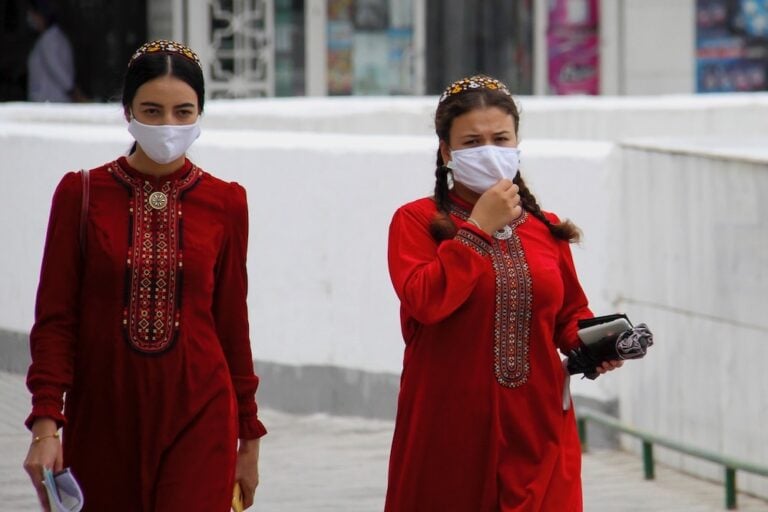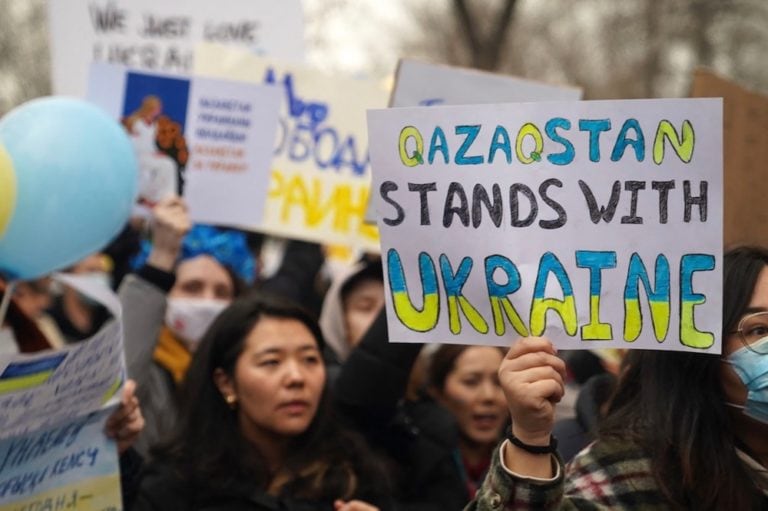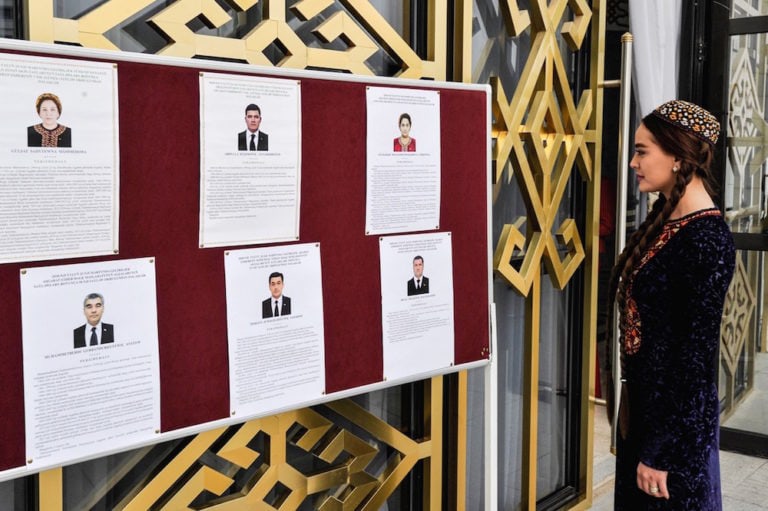(RSF/IFEX) – RSF has voiced outrage over Turkmen authorities’ treatment of journalist Viktor Panov, who was deported on 12 March 2005 after being held for two weeks in Ashgabat. A Foreign Ministry official who did not want to be identified said Panov, who works for the Russian news agency RIA-Novosti, was accused of spying for […]
(RSF/IFEX) – RSF has voiced outrage over Turkmen authorities’ treatment of journalist Viktor Panov, who was deported on 12 March 2005 after being held for two weeks in Ashgabat. A Foreign Ministry official who did not want to be identified said Panov, who works for the Russian news agency RIA-Novosti, was accused of spying for Moscow.
“Even if Russia and Turkmenistan have not been on very good terms since 1991, journalists should not have to pay the price by being detained and expelled by force,” RSF said. “Viktor Panov’s expulsion constitutes yet another violation of press freedom in a country where diversity of opinion has completely disappeared,” the organisation stressed.
Panov, who has dual Turkmen and Russian citizenship, was initially detained by police for several hours on 23 February on allegations of “hooliganism”. The next day, he was arrested by two Foreign Ministry officials and placed in custody. On 12 March, the Russian human rights group Memorial reported that witnesses saw a handcuffed Panov at Ashgabat airport being escorted by several plainclothes men onto a Moscow-bound flight.
Relations between Turkmenistan and Russia have been strained since the collapse of the Soviet Union in 1991. Russia has shown a great interest in its neighbour’s gas reserves but bristles at the treatment which the Russian minority receives at the hands of a nationalist government led by President-for-life Separmurad Nyazov.
Nyazov, the so-called “Father of all Turkmen”, has ruled with an iron fist since 1985. All media outlets have been turned into propaganda tools in the service of his personality cult. The few foreign journalists remaining in the country have been “invited” to leave and expulsions are not uncommon.


